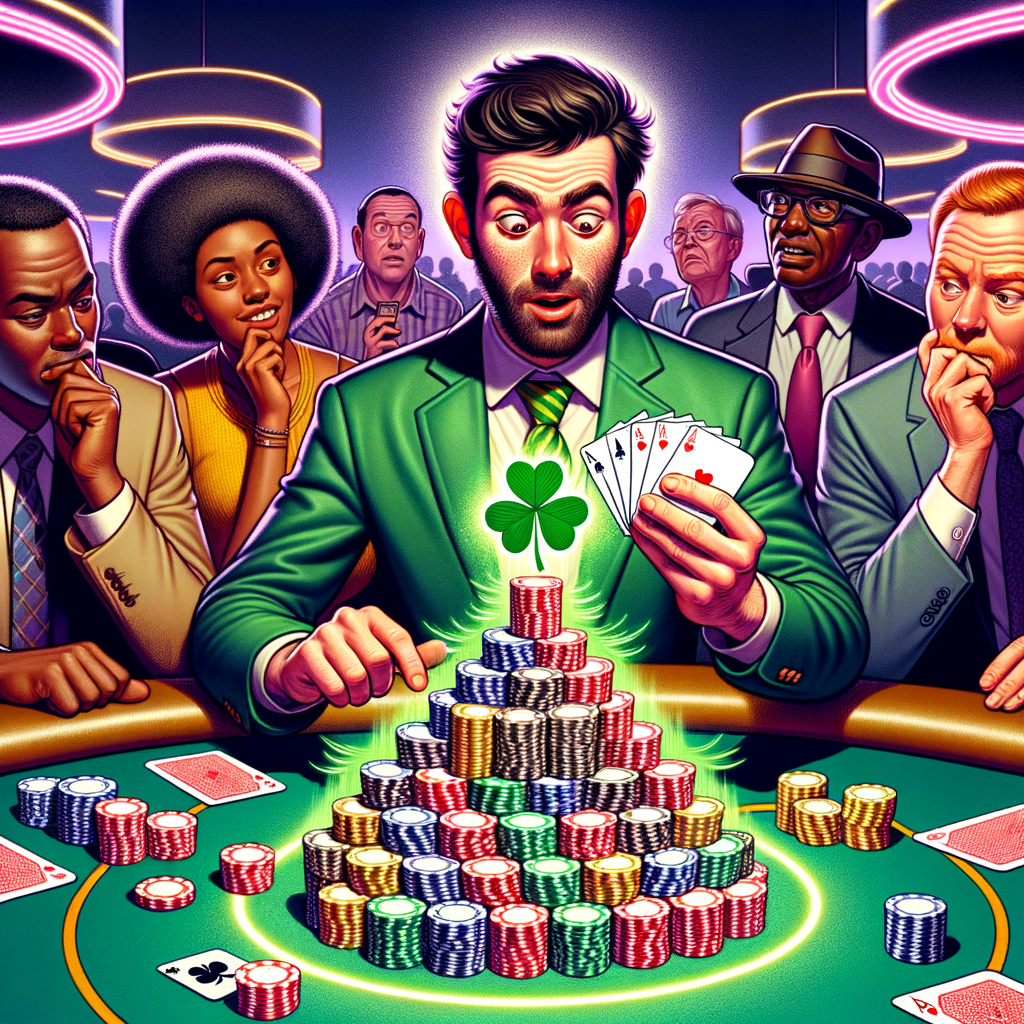Gambling has long been associated with superstitions, rituals, and lucky charms. From wearing specific clothing to carrying talismans, players often believe that these tokens can sway fortune in their favor. However, what does science say about the efficacy of these lucky charms? Do they hold any real power in the realm of chance-based games? To delve deeper into this question, we consulted professional statisticians to explore the science behind superstitions in gambling practices and to understand whether lucky charms have any grounding in statistical reality.
The Science Behind Superstitions in Gambling Practices
Superstitions are a common human behavior that arise from a desire to exert control over uncertain outcomes. In gambling, where the odds are often stacked against the player, these rituals can provide a psychological comfort. Research has shown that the act of engaging in a superstition can enhance one’s confidence and motivation, potentially leading to improved performance, even if the superstition itself does not influence the outcome.
A 2016 study published in the Journal of Gambling Studies found that gamblers who believed in lucky charms reported greater satisfaction and enjoyment from their experiences, regardless of the actual outcomes. This phenomenon can be attributed to the placebo effect, where belief in a superstition fosters a sense of agency or control. Consequently, while lucky charms might not statistically improve a player’s odds in games of chance, they can impact a gambler’s mindset and overall experience.
Furthermore, the concept of "gamblers fallacy" plays a critical role in how players perceive luck and chance. Many individuals mistakenly believe that past outcomes influence future events, which can lead to the adoption of superstitions. For example, if a player has a winning streak while wearing a specific shirt, they may come to believe that the shirt itself is responsible for their success, thereby reinforcing the charm’s perceived effectiveness.
| Superstitions in Gambling | Description | Examples |
|---|---|---|
| Lucky Charms | Objects believed to bring good fortune | Four-leaf clovers, rabbits’ feet, special coins |
| Rituals | Actions repeated to invoke luck | Knocking on wood, wearing lucky socks |
| Numbers | Specific digits associated with luck | 7 (common lucky number), 13 (unlucky in some cultures) |
Statisticians Weigh In on the Efficacy of Lucky Charms
To gain a clearer understanding of the relationship between lucky charms and gambling outcomes, we sought insights from statisticians specializing in probability and behavioral economics. According to Dr. Emily Huang, a statistician at the University of California, "While lucky charms may enhance a gambler’s psychological state, they have no bearing on the mathematical probabilities governing games like poker or blackjack." Dr. Huang emphasizes that every outcome is independent of previous results, and no physical object can alter the laws of probability.
Dr. Mark Thompson, another expert in gambling behavior, added that "the reliance on lucky charms often leads to cognitive biases that distort decision-making." He pointed out that players who rely on superstitions might ignore more relevant statistical information, such as odds and probabilities, ultimately affecting their betting behavior. This cognitive bias can lead to poor decision-making, resulting in greater losses over time, undermining any perceived benefits from lucky charms.
Moreover, data from various studies indicate that the impact of superstitions can vary widely among different demographics. Younger gamblers, for instance, might place a higher value on lucky charms than older, more experienced players, who may base their decisions more on mathematical analysis. As Dr. Huang concluded, "Understanding the psychology of gambling can help players make more informed decisions, rather than relying on luck alone."
Q&A Section
Q: Do lucky charms actually increase the chances of winning?
A: No, statistical analysis indicates that lucky charms do not affect the probability of winning in gambling. Outcomes are based on chance.
Q: What is the placebo effect in gambling?
A: The placebo effect refers to the psychological benefits gained from believing in something, such as a lucky charm, which can enhance confidence and enjoyment, even if it doesn’t influence the outcome.
Q: Are younger gamblers more superstitious than older ones?
A: Research suggests that younger gamblers might place more importance on lucky charms, while older players may rely more on statistical analysis and experience.
Q: How can superstitions affect gambling decisions?
A: Superstitions can lead to cognitive biases that may distort decision-making, causing players to ignore relevant statistical information and potentially leading to greater losses.
In conclusion, while the allure of lucky charms in gambling remains a persistent aspect of gaming culture, statisticians consistently emphasize that these charms do not alter the fundamental probabilities at play. Instead, they serve as psychological tools that can enhance the gambling experience but are ultimately powerless against the odds. Understanding the interplay between superstition and probability can empower gamblers to make wiser, more informed decisions at the tables.




Comments